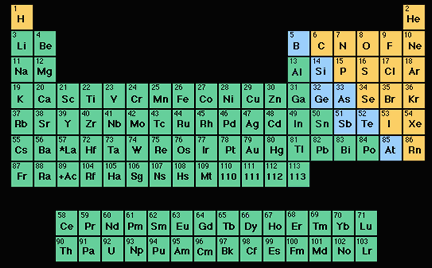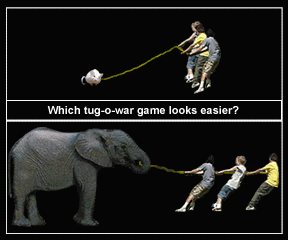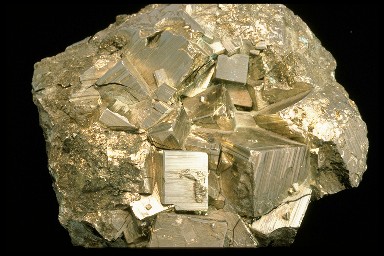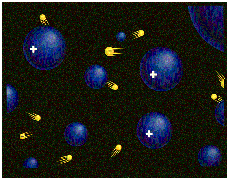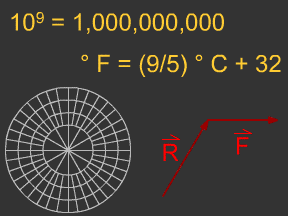Click on image for full size
L.Gardiner/Windows to the Universe
Starting Points for Science
Some basic concepts find applications in many, many places throughout science, especially physical science. We have grouped these "starting points for science" into three clusters: space, time, and matter.
On one hand, "space" is the term we use for everything beyond Earth. However, "space" is also the way we refer to location and the distance between objects. We live in a world with three spatial dimensions, so coordinate systems that describe locations and distances are an important tool for describing space. The many units we use for measuring distance are an important part of our notion of space. Our modern view of the Universe, based on Einstein's General Theory of Relativity, includes the non-Euclidean idea that space is curved.
Time is a second key cornerstone that helps us get specific in describing events. Many of our measures of time, such as days, months, and years, are based on astronomical phenomena. Armed with the concepts of space and time, we can specify the "where" and the "when" in our observations of the world around us.
Out third cornerstone concept is matter, the "stuff" without which the Universe would be a lonely place. We specify the amount of matter in an object in terms of the object's mass. There are four basic forms that matter can take on: solid, liquid, gas or plasma. Numerous fundamental concepts, such as weight, pressure, and density, have close ties to the notions of mass and matter. Matter can be classified and grouped, as is done with the chemical elements in the periodic table. Matter and energy are intimately intertwined ideas, as expressed in Einstein's famous equation relating the two: E = mc2.


